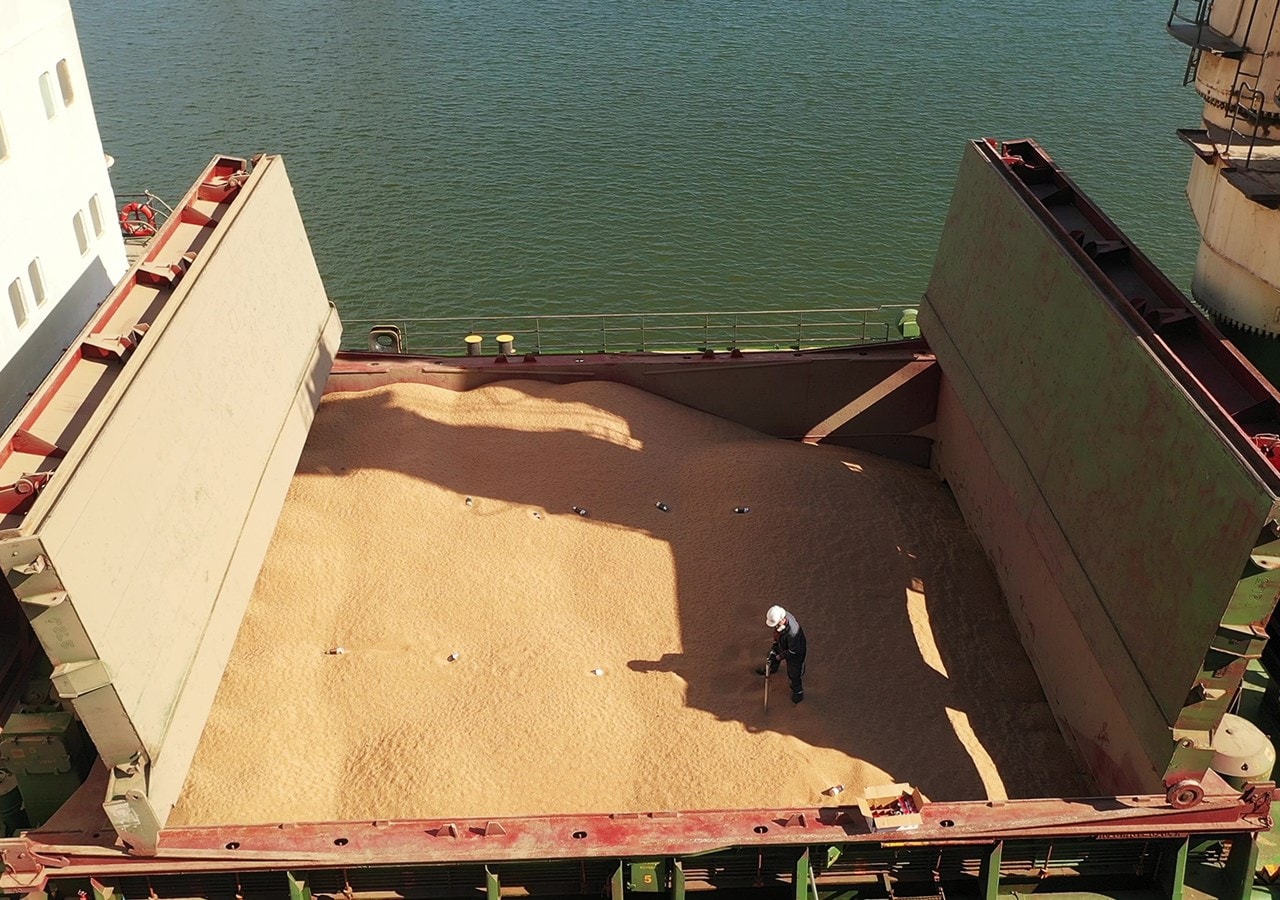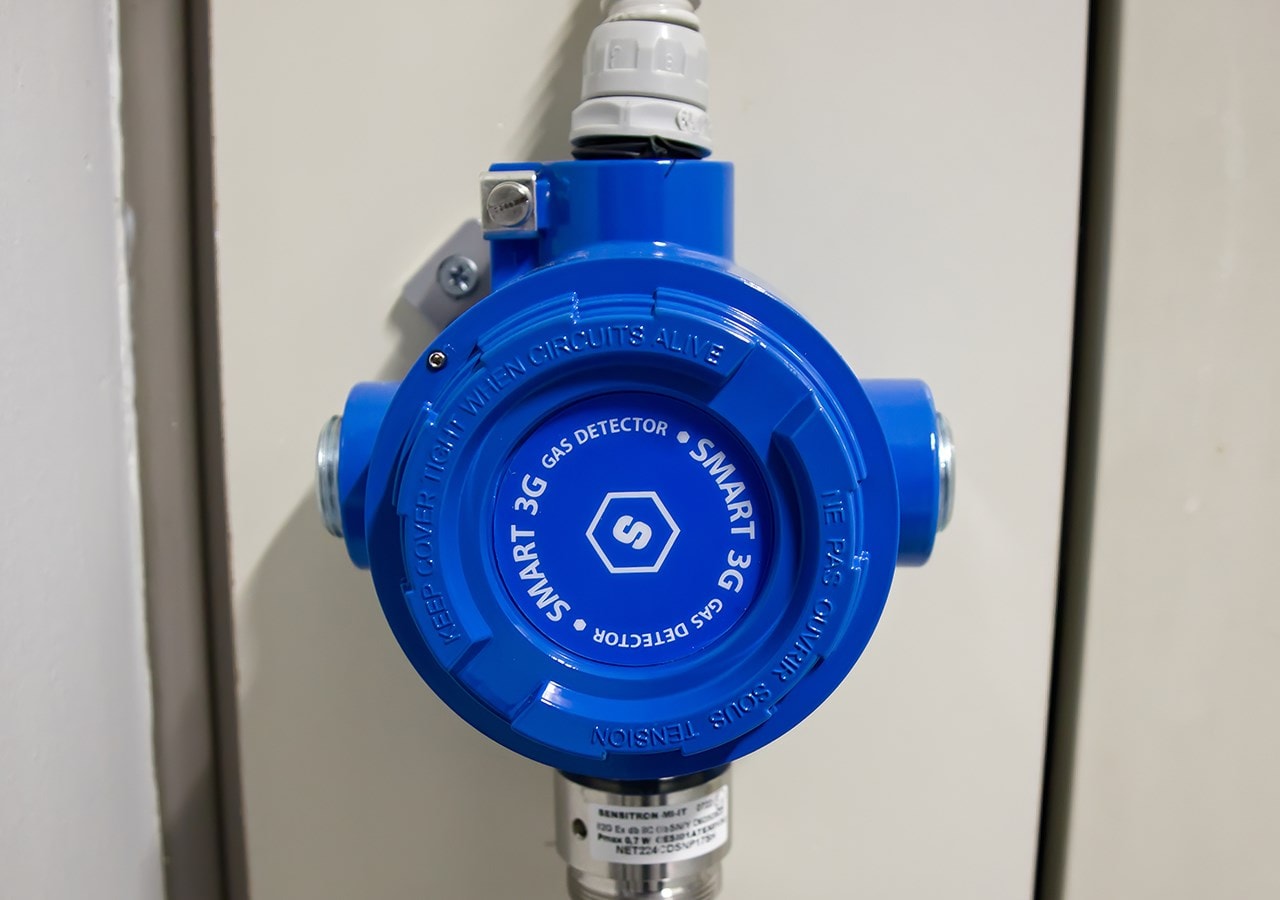Unseen Danger - Improving In-Transit Fumigation Safety
The Club has noted a concerning rise in incidents involving vessels undergoing in-transit cargo fumigation leading to the accidental exposure of crew members to phosphine gas (PH3), a colourless and odourless fumigant used during the process.

The impact of such exposure has been grave, resulting in severe illnesses, rapid decline in crew health, and, in some instances, fatalities. Remarkably, certain incidents have taken place within cargo holds certified as gas-free.
The insidious nature of phosphine gas makes it particularly hazardous without proper detection systems in place. Since the gas lacks any distinct odour or colour, crew members may remain unaware of its presence until symptoms of poisoning become apparent. Furthermore, the gas can be masked by other smells onboard, making it even harder to detect without specialised equipment.
The Club has identified the primary causes of gas entry into vessel accommodation and working spaces. Deficiencies in the ventilation systems within these areas have allowed gas infiltration due to a failure to maintain positive pressure. Gas ingress has also been observed through electrical conduits and structural defects in adjoining bulkheads, including cracks and corrosion holes, emphasising the necessity of rigorous maintenance and inspections. Another significant contributing factor is the omission of assessing the gas-tight integrity of cargo holds before fumigation.
Tragically, our observations have revealed fatal incidents linked to phosphine exposure under specific circumstances. Crew members were unaware of the potential effects of the fumigant gas, as the symptoms were mistaken for food poisoning or seasickness. Inadequate periodic monitoring of the atmosphere within the accommodation and working spaces failed to detect the presence of gas promptly. Gas accumulation in adjacent void spaces occurred without the crew's knowledge, as it was not recognised as a potential risk for entry. Additionally, there were instances where cargo holds were certified as gas-free, but pockets of gas remained, leading to unforeseen hazards.
These observations underscore the critical importance of increasing crew awareness, enhancing monitoring procedures, and implementing thorough inspections to prevent fatal incidents related to phosphine exposure during in-transit fumigation on board.
The Club's findings align with those of the Bahamas Maritime Authority (BMA), which also experienced two tragic incidents of in-transit fumigation on their flagged vessels: the M/V JUPITER (May 2022) and M/V FRI DOLPHIN (February 2020). The accident investigation reports from these incidents reveal that fatalities related to in-transit fumigation are not isolated occurrences; rather, they have been happening over several years and across various flag state administration vessels.

Given the gravity of these alarming events, the BMA has proposed a crucial solution - the installation of fixed advanced gas detection systems on vessels. These systems are capable of continuous monitoring, thereby ensuring the safety of crew members at risk during fumigation processes.
Currently, the only legal requirement regarding gas detection is outlined in IMO MSC.1/Circ. 1264, which obligates monitoring to take place at least once every 8 hours in all appropriate locations on board, encompassing accommodation areas, engine rooms, and other operational spaces. The recorded readings are to be duly documented in the vessel's logbook, and warning signs must also be prominently displayed in relevant areas throughout the ship.
Nonetheless, the Club advocates a thorough strategy for vessels transporting dry cargo undergoing in-transit fumigation, aligning with the BMA's proposal. This comprehensive approach entails installing permanently fixed continuous gas detection systems equipped with alarms at critical points throughout the vessel. These sophisticated systems are specially designed to constantly monitor the air for the presence of dangerous gases, like PH3, and immediately activate alarms if gas levels surpass permissible thresholds.
While portable gas detectors will still be utilised for spot checks and targeted inspections, the primary advantage of fixed systems is their ability to provide real-time, continuous monitoring of crew living and working spaces. Such early warning capabilities empower crew members to respond promptly, locate the source of gas entry, and take appropriate corrective actions to protect their health and safety.
To ensure the effective prevention of gas-related incidents, the Club emphasises the need for a multi-faceted approach:
- Identification and confirmation of gas-tight cargo
holds by the responsible fumigator, with particular attention given to
those adjacent to accommodation and working spaces.
- A thorough inspection of all areas that could be
affected by fumigant gas entry to identify and rectify potential risks.
- Maintenance of positive pressure within
accommodation ventilation systems and surrounding areas to prevent gas
ingress.
- Installation of a reliable gas detection and alarm
system, particularly in the engine room, where positive pressure air
environments may be challenging to maintain.
- Regular inspections, maintenance, and calibration
of gas detection equipment to ensure accurate and dependable readings.
- Comprehensive training for the crew on gas detection systems, including operational procedures, interpretation of alarm signals, and appropriate responses during gas-related emergencies.
The safety of in-transit fumigation procedures can be significantly enhanced by incorporating permanent fixed continuous gas detection systems, adhering to recommended preventive measures, and fostering crew awareness. These proactive steps not only protect the well-being of the crew but also substantially diminish the likelihood of accidents.
We sincerely thank Nick Dowden (Assistant Director/Marine Investigator) at the BMA for his invaluable insights and collaborative efforts on this important matter. Furthermore, we earnestly encourage all maritime stakeholders to support the BMA's proposed initiative, which seeks to amend current regulations and mandate continuous gas monitoring on all vessels during in-transit fumigation. This vital step will ensure the safety of crew members and personnel on board.

Members requiring further guidance should contact the Loss Prevention Department.
Additional Club publications on fumigation matters can be found within the following links below:
